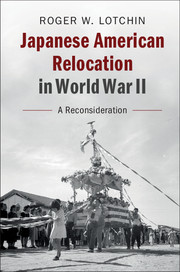Book contents
- Japanese American Relocation in World War II
- Japanese American Relocation in World War II
- Copyright page
- Dedication
- Contents
- Figures
- Preface
- Introduction
- Part I The Reach of American Racism?
- Part II Concentration Camps or Relocation Centers?
- Part III The Demise of Relocation
- 24 The Politics of Equilibrium
- 25 Endgame
- 26 Conclusion
- Appendix Historians and the Racism and Concentration Center Puzzles: A Compact with Comity by Zane L. Miller
- Bibliography
- Index
25 - Endgame
Termination of the Centers
from Part III - The Demise of Relocation
Published online by Cambridge University Press: 24 April 2018
- Japanese American Relocation in World War II
- Japanese American Relocation in World War II
- Copyright page
- Dedication
- Contents
- Figures
- Preface
- Introduction
- Part I The Reach of American Racism?
- Part II Concentration Camps or Relocation Centers?
- Part III The Demise of Relocation
- 24 The Politics of Equilibrium
- 25 Endgame
- 26 Conclusion
- Appendix Historians and the Racism and Concentration Center Puzzles: A Compact with Comity by Zane L. Miller
- Bibliography
- Index
Summary
- Type
- Chapter
- Information
- Japanese American Relocation in World War IIA Reconsideration, pp. 305 - 308Publisher: Cambridge University PressPrint publication year: 2018



